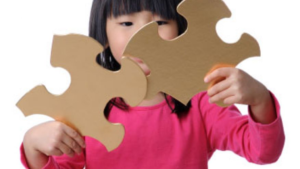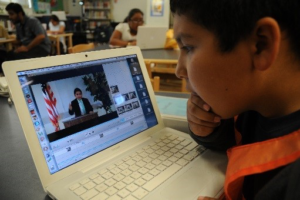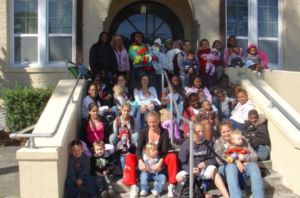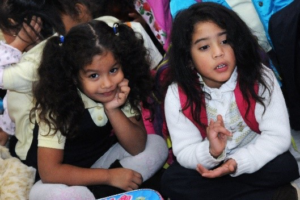We Serve All Students
Our structured, yet flexible model leverages the unique characteristics and assets of each community. Nationally, 68% of Micro Citizens are eligible for free or reduced price meals and 71% are Hispanic, African American, or represent other minority groups. Students with special needs are completely integrated into MicroSociety activities.

Autism Spectrum
By functioning as a member of MicroSociety’s real life economy and experiencing the naturally occurring reinforcement and peer-to-peer support systems within it, students learn the daily living skills of life in a community. Armed with a new sense of autonomy and competence, disruptive behaviors dissolve. Communication, socialization and self-management skills are practiced and honed. As students practice adapting to the responsibilities of “the job”, they learn to read visual cues and increase their self-awareness while meeting the expectations of their peer managers. As they begin to flourish, the student body and staff gain a deeper appreciation for their unique contributions and needs. From California to North Carolina, MicroSociety schools are building powerful evidence of these students’ potential.

Gifted Students
When the high achieving students in Connecticut are offered opportunities to extend their learning and apply it to practical pursuits, school assumes a new level of structure. In the classroom, students engage in independent study around concepts and topics of interest to their society. They form guided questions, uncover answers through research and interaction with global field experts and present their findings in a style that best matches their personal strengths. In MicroSociety, curriculum is extended and social-emotional growth is nurtured. Two years into implementation, this MicroSociety school ranked the top-performing school in the state.

Teen Moms
Chiles Academy in Daytona Beach, Florida, harnesses MicroSociety to create a stabilizing influence in the lives of pregnant and parenting teens and their children, and to empower them to become self-sufficient, independent and responsible adults. MicroSociety provides a positive path to self-worth, one that keeps teen parents in school. The Florida Department of Education has named Chiles a “Five Star School”.

Other Special Needs
Newark, New Jersey chose MicroSociety to help its differently abled youth learn to work independently of teachers and become skilled problem solvers. Higher test scores came too as 80% of students who participated in MicroSociety for three years outperformed their peers. Within a few months of launch, students at Bruce Street School for the Deaf were working independently and problem solving on a regular basis: calculating loans for business start-ups, deciding which jobs to apply for and accept, pricing products and figuring out how to market them, and solving debt and credit problems.